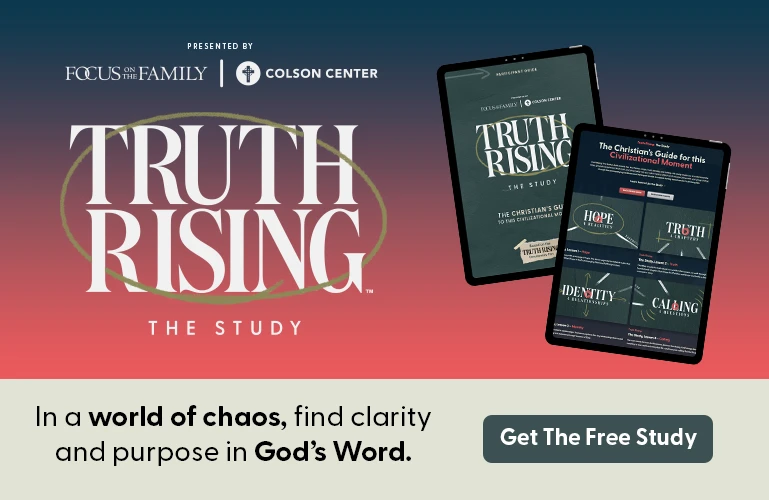Hebrews 10:24-25 reads, “And let us consider how we may spur one another on toward love and good deeds. Let us not give up meeting together, as some are in the habit of doing, but let us encourage one another …” (NIV) [1] Although the word “church” is not in the verses quoted, the context of the passage indicates the writer is indeed making a reference to church.
In the early days of Christianity, believers met in homes. The Greek word used to describe these meetings is ekklesia, which, when used of the church, simply means to assemble, meet, gather together or congregate (from which we get the word congregation).
Today the landscape of Christian churches has changed dramatically. For Christians in the United States, for instance, there are literally hundreds of Christian denominations and traditions to choose from, with some cities home to numerous Christian churches.
While the Hebrews passage above reminds Christians to make sure they gather together regularly, new Christians and even longtime believers may find themselves confused about finding the “right” church. This article will offer some helpful suggestions for choosing a Christian church.
What is the Church?
Before we get into specific suggestions for finding a church, it will help to look at two common Christian distinctions of the word. The Christian church is both visible (local) and invisible (universal). The visible church consists of physical gatherings, usually in church buildings, while the invisible church consists of Christians throughout the ages. The invisible or universal church is one, while visible local churches are many.
Every Christian is a member of the universal church because by definition Christians are believers in Christ. Therefore, they are members of His body – the church. The Bible, in fact, offers a number of images of the church such as calling it the “body of Christ”: “Now you are the body of Christ, and each one of you is a part of it” (1 Corinthians 12:27). The church is also called “the people of God” (Hebrews 4:9; 1 Peter 2:10). Christ is the head of the church (Ephesians 4:15; 5:23).
While the visible and local church consists of organizations or institutions, the invisible and universal church consists of all Christians united under Christ.
The Purposes of the Church
God’s church has many purposes such as evangelism, edification, worship and social concern. [2] To evangelize means to tell others the Good News (Gospel) of Jesus Christ and what He has done. Matthew 28:19 provides the mandate to spread the gospel. This means that every church needs to be involved in some form of evangelism, reaching out to non-Christians with the truth of Christ.
The church is also to edify Christians. To edify means to build up, equip, improve, encourage or support. Gathering together with other believers, as in attending church, is one important way to be edified as a Christian. We can also be edified by teachings in a sermon, Bible study or small group. There are other ways the church provides edification, but the point is that another purpose or role of the church is to edify.
Worship is also a key function of the church. It is where we gather with other Christians and worship God. This does not mean that a church building is the only place we can worship (it’s not), but it is something the church is to do regularly. Although different Christian churches have different forms of worship styles or music, the purpose is to worship God, not to entertain or amuse the congregation.
Another purpose of the church is social concern. This means we are not just to gather together on an intellectual level, spend all our time in worship or evangelize without humanitarian concern. While evangelism, edification, and worship are important in the life of any church, it’s also important to go out into the world and do something positive to help others just as Christ called us to do (see, for instance, Matthew 25:35-36). Social concern was a key part of the early Christian church and has continued to be a central component of Christianity.
Can You Find the “Right” Church?
Keeping in mind the purposes of the church, we’re now ready to get into some specifics about finding a church. What church should you attend? Sometimes Christians spend a lot of time trying to find just the “right” church. Unfortunately, this method is rarely successful. Instead of concentrating on finding the “right” church for you, concentrate on finding a church that honors God’s truths as expressed in the Bible and throughout the history of the church.
One thing to keep in mind is what a particular church believes and teaches. We might call this “doctrine.” While Christian traditions have room for a variety of expressions of church and worship, for instance, all Christian churches throughout the centuries adhere to a core of essential beliefs about God, Christ, humanity, salvation, etc.[3]
Robert M. Bowman, Jr., offers five helpful tips for, “Checking Out a Church’s Teaching” [4]:
1. Have a clear idea of what kind of teaching you want. Christianity consists of numerous denominations and some primary traditions. Knowing what you are looking for is important.
Although Christians are united on essentials such as the deity of Christ and His bodily resurrection, there is a lot of room for diversity on secondary issues, meaning differing approaches and interpretations of Bible prophecy, varying means of baptism, differences regarding the details of the observation of communion, etc. There are also varying forms of church government such as episcopal, presbyterian and congregational.
2. Inquire about religious affiliations. Is the church you are considering part of a denomination? Is it independent and self-governing? Is it associated with any particular organizations? Asking these kinds of questions may help you learn more about the church you are considering.
3. Ask for a doctrinal statement. This may also be called a statement of faith. In short, a doctrinal statement should list essentials that the church believes.
4. Find out who founded the church or denomination, and who its leaders are today. Again, learning this information may help you better understand where the church you are considering is coming from, as well as where they are.
5. Consult standard reference works. If you are considering a particular denomination, you should check out their Web site, both for the denomination and, if they have one, the specific church you have in mind. You can also try books such as Handbook of Denominations in the United States by Frank Mead (Abingdon) and Pocket Dictionary of North American Denominations (InterVarsity Press).
The Perfect Church?
Haven’t you found the perfect church? You won’t. Every visible and local church consists of a mixture of members, all of whom are flawed to one extent or another. Even though you will not find a perfect church, do your best to find a solid church that honors the Bible and the essential beliefs of Christianity. As you search for a church, remember to pray for God’s guidance, too.
For more information or reading materials, call 1-800-A-FAMILY (232-6459).
Robert Velarde is author of Conversations with C.S. Lewis (InterVarsity Press), The Heart of Narnia (NavPress), and Inside The Screwtape Letters (Baker Books). He studied philosophy of religion and apologetics at Denver Seminary and is pursuing graduate studies in philosophy at Southern Evangelical Seminary.
[1] All Scripture quotations are form the New International Version of the Bible.
[2] These four points are based on Millard Erickson’s helpful insights in Christian Theology (Baker, 1998, 2nd edition), chapter 51.
[3] See Basic Christianity by John Stott (InterVarsity Press) if you need a refresher on the essentials of Christianity, or read through some creeds of Christianity such as the Apostles’ Creed, Nicene Creed, and Athanasian Creed.
[4] These five points are made by Robert M. Bowman, Jr., Orthodoxy and Heresy: A Biblical Guide to Doctrinal Discernment (Baker, 1992), Appendix A. See chapter 10 for an excellent summary of essential Christian beliefs.
















